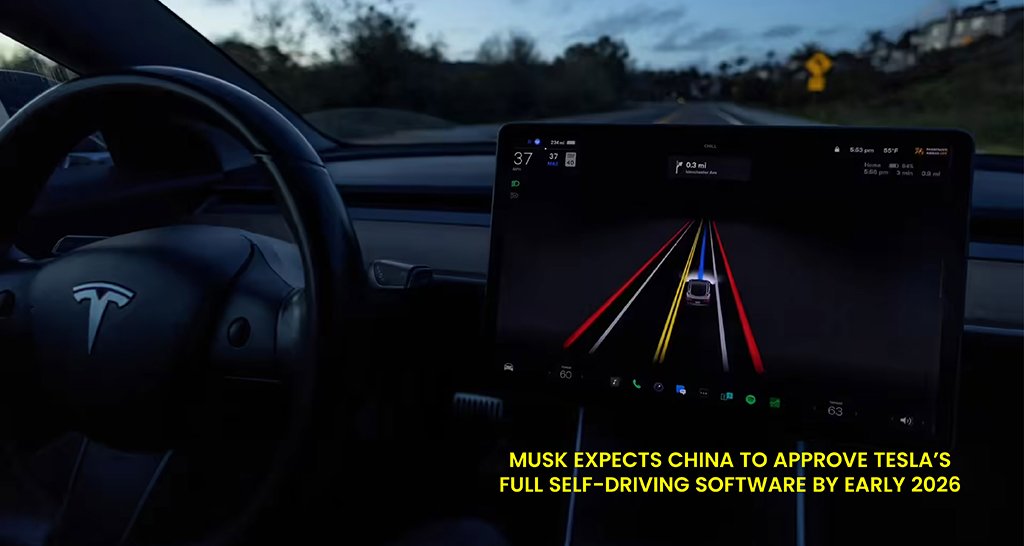Elon Musk is feeling optimistic about Tesla’s much-anticipated Full Self-Driving (FSD) software, predicting that it will gain full regulatory approval in China by early 2026. He shared this hopeful outlook during the latest discussions with shareholders, highlighting just how important China is for Tesla’s global push into autonomous driving technology.
Right now, Tesla’s FSD system is only partially available in China because of regulatory hurdles. While it does provide some driver-assist features, it does not have the full autonomy options that are offered in the United States. This limited rollout has left many Chinese Tesla owners feeling frustrated, especially since they paid a premium for the FSD package but have not been able to enjoy all its promised capabilities.
According to Musk, the company is anticipating full approval “around February or March” next year, thanks to their ongoing discussions with Chinese regulators. This timeline indicates that Tesla is getting close to meeting the government’s requirements for data, safety, and localization key challenges that have held up the launch of advanced driving systems in the world’s largest automotive market.
China’s regulatory bodies are treading carefully when it comes to autonomous driving technology, trying to strike a balance between fostering innovation and enforcing strict safety and data protection rules. Tesla has already adjusted its operations to align with local regulations, such as keeping all Chinese driving data on local servers and adhering to data security standards. Gaining full approval would be a major achievement, showcasing Tesla’s commitment to aligning with China’s digital governance policies.
The shift comes as competition heats up from Chinese automakers like BYD, NIO, and Huawei-backed Aito, all of which have made significant advancements in intelligent driving systems. Many of these competitors are now providing advanced driver-assistance features at no extra charge, which is putting pressure on Tesla to speed up its tech rollout and rethink its pricing strategy.
Industry experts believe that securing regulatory approval could be a game-changer for Tesla, helping the company regain its footing in China, where local competitors have taken a significant share of the electric and smart vehicle market. A successful launch of the Full Self-Driving (FSD) feature could further solidify Tesla’s reputation as a software-centric carmaker, rather than just another electric vehicle manufacturer. This shift could boost its brand appeal and help justify the premium prices of its cars.
Despite the progress, there are still hurdles to overcome. Even with the green light, Tesla will have to fine-tune its FSD system to fit the specific road conditions, signage, and driving habits found in China. Making sure the maps and AI training data are localized will be essential for guaranteeing safety and building user confidence.
For Tesla customers in China, the anticipated approval is more than just a software update; it’s the realization of a long-held promise. If everything goes according to plan, by early 2026, Chinese Tesla owners could finally unlock the complete range of FSD capabilities, marking a major leap forward in the global expansion of autonomous driving technology.
Musk’s forecast reflects Tesla’s confidence in overcoming both regulatory and technological hurdles in China. As the competition for automotive independence heats up, the company’s ability to navigate one of the most intricate regulatory landscapes in the world could pave the way for its next chapter of global expansion.












